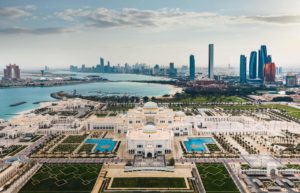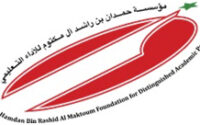UAE Women – 50 Years Of High Profile In All Walks Of Life
Nearly fifty years ago, the tremendous challenges facing the UAE and other countries of the region revolved around how to ensure that women are empowered to their right to education and health, while the option of women entering the labour market was not on the table.
Today, the scene appears completely different, as the presence of women is equal to that of men, and the scales have tilted in favour of her in many indicators. The images of her active participation as a maker and a contributor to the most important recent achievements in the country have been present for a long time, represented in the launch of the Hope Probe to Mars, and the launch of Units 1 and 2 of the Barakah Nuclear Power Plant, the first peaceful reactor at the Arab level.
Today, the UAE is looking forward to entering the world’s top ten list in the United Nations Gender Equality Index, having ranked 18th in the world this year, and first in the Arab and the Middle East according to the latest World Bank reports. The Emirati women hold half of the seats in the Federal National Council (FNC), and maintain a strong presence in the formation of the government, with nine women holding different portfolios.
H.H. Sheikha Fatima bint Mubarak, Chairwoman of the General Women’s Union (GWU), Chairwoman of the Supreme Council for Motherhood and Childhood, and Supreme Chairwoman of the Family Development Foundation (FDF), expressed her view on the status of women, saying, “The daughter of the Emirates is no longer preoccupied with claiming her rights after the state has been able to implement the concept of empowering women and make it a practical reality.”
The UAE has been ranked 18th globally and the first regionally in the United Nations Development Programme (UNDP) 2020 Gender Inequality Index (GII), becoming a global leader in the empowerment of women and their rights.
The UAE has topped the Middle East and North Africa (MENA) region rankings in the World Bank’s 2021 “Women, Business and the Law” (WBL) report. The country’s ratings in the World Bank report saw a significant leap under the ground-breaking legislative reforms implemented over the past few years. It also achieved a full score (100 points) in five indicators in the latest report: Movement, Workplace, Wages, Entrepreneurship, and Pension.
In 2019 and 2020, 11 new laws and legislative amendments were approved to strengthen women’s rights and ensure their overall empowerment.
In terms of political participation, President His Highness Sheikh Khalifa bin Zayed Al Nahyan, issued a resolution in 2019 to raise the representation of women in the Federal National Council (FNC) to 50 percent during the 2019 elections.
The UAE issued Federal Decree-law No 6 of 2020, amending some provisions of the Federal Law No. 8 of 1980 to grant employees in the private sector paid leave to care for the child. The UAE became the first Arab country to do so.
The country also issued the Decree of Federal Law No. 06 for 2020, stipulating equal wages for women and men in the private sector, if they perform the same work or another of equal value.
President His Highness Sheikh Khalifa also approved Federal Law-Decrees to amend the Penal Code. Based on the commitment to protecting women’s rights, amendments to the Penal Code and Criminal Procedural law have repealed the article giving a reduced (lenient) sentence in what is called “honour crimes”.
The participation of Emirati women in the Hope Probe team accounts for 34 percent, and 80 percent of the probe’s scientific team. They represent 20 percent of the total employees of the Emirates Nuclear Energy Corporation (ENEC), which is one of the highest global rates in the nuclear energy sector.
The Federal Competitiveness and Statistics Centre revealed in its recent statistics that Emirati women account for 33.7 percent of the population.
In the education sector, female graduates specialising in information and communication technology account for 49.1 percent of total graduates, while the number of female students enrolled in higher education is 362,687, the number of female Master’s degree holders is 207,630, the number of female PhD holders is 15,426, and female graduates in the fields of journalism, media and social sciences account for 63 percent.
Women have a significant presence in the business sector, accounting for 24 percent of the total number of employees in the country, with young women representing 46 percent of federal authority boards.
Women also account for 64 percent of the total employees in the education sector, as well as the same percentage in terms of doctors, nurses and technical staff in the health sector, in addition to 31 percent of the total number of employees in the finance, banking and insurance industries.
The centre also noted that the number of registered companies owned by women in the country is 80,025, and women account for 21.5 percent of administrative positions and 32.5 percent of employees in specialist professions.







